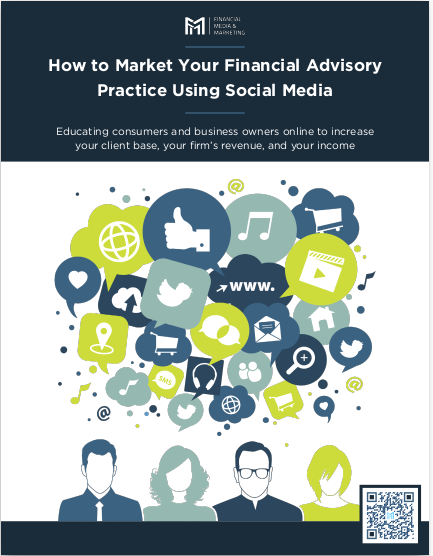Key Takeaways
-
Building a personal brand as a financial advisor helps attract the right clients and differentiate you from the competition.
-
Effective branding requires consistency, authenticity, and a strong online presence that positions you as a trusted expert.
Why Your Personal Brand Matters More Than Ever
The financial industry is crowded, and standing out is no easy feat. Clients no longer just look for credentials; they seek advisors who resonate with their values, understand their needs, and provide a sense of security. Your personal brand is what helps you achieve that connection. A strong brand not only builds trust but also brings in the right clients—those who align with your expertise and approach.
Defining Your Unique Value Proposition
Before you start marketing yourself, you need to clearly define what sets you apart. Ask yourself:
-
What specific financial problems do you solve?
-
Who is your ideal client?
-
What values drive your approach to financial advising?
-
How do you want clients to perceive you?
The clearer you are about your unique value, the easier it is to craft a brand that speaks directly to your target audience.
Crafting a Compelling Brand Message
Your brand message should reflect your expertise, values, and the solutions you provide. It should be concise yet powerful enough to make an impression.
How to Develop Your Message:
-
Use Simple Language – Avoid jargon that may confuse potential clients. Speak their language.
-
Highlight Your Expertise – What makes you an authority in your niche? Showcase your strengths.
-
Show Empathy – Clients want to know that you understand their concerns and are committed to solving them.
-
Be Consistent – Ensure your messaging is uniform across your website, social media, and any client-facing materials.
Establishing a Strong Online Presence
In today’s digital world, your online presence is just as important as your in-person interactions. Clients often research financial advisors before reaching out, so having a polished and authoritative online identity is key.
Website: Your Digital Business Card
Your website should be professional, informative, and easy to navigate. Key elements to include:
-
A clear ‘About Me’ section that tells your story and establishes credibility.
-
Client testimonials to build trust and social proof.
-
A blog or resource section where you share valuable financial insights.
-
Easy contact options so potential clients can reach you effortlessly.
Social Media: A Tool for Engagement
Social media platforms allow you to connect with clients and showcase your expertise. Focus on:
-
Posting regularly with valuable content such as market updates, financial tips, and industry trends.
-
Engaging with your audience by responding to comments and participating in discussions.
-
Using visuals like infographics and videos to make complex financial topics easier to understand.
Creating Valuable Content to Attract Clients
Content marketing is one of the most effective ways to build authority and attract potential clients. Your goal should be to educate, inform, and inspire trust.
Types of Content That Work:
-
Blog Posts – Write about retirement planning, wealth management strategies, tax-saving tips, and more.
-
Videos – Short explainer videos on financial concepts can boost engagement.
-
Email Newsletters – A monthly or weekly email keeps you top of mind with your audience.
-
Webinars and Online Workshops – Live sessions on pressing financial topics showcase your expertise in real time.
Building Trust Through Thought Leadership
Positioning yourself as a thought leader in your industry adds credibility to your personal brand. To achieve this:
-
Get featured on financial news platforms by offering expert insights.
-
Guest post on reputable industry blogs to increase your visibility.
-
Speak at industry events to showcase your knowledge and build connections.
-
Host Q&A sessions where potential clients can ask questions about financial planning.
Networking and Relationship Building
Your brand extends beyond online presence—it’s also about personal connections. Building relationships with peers and potential clients solidifies your credibility.
Ways to Strengthen Your Network:
-
Attend financial industry conferences and networking events.
-
Join professional associations related to financial planning.
-
Collaborate with other experts, such as accountants and legal advisors, to expand your reach.
-
Offer free consultations to showcase your expertise and build rapport with prospects.
Maintaining Consistency Across All Channels
Brand consistency reinforces your credibility and ensures clients recognize and trust your messaging. Every touchpoint—whether a blog post, social media update, or client interaction—should reflect your brand’s core values.
How to Stay Consistent:
-
Use the same professional tone and voice across all content.
-
Keep your visual branding (logos, colors, fonts) uniform.
-
Regularly audit your online presence to ensure messaging aligns with your brand identity.
Evaluating and Adapting Your Brand Over Time
Branding isn’t a one-time effort. It requires ongoing evaluation and adaptation to stay relevant and effective.
Steps to Keep Your Brand Strong:
-
Analyze engagement metrics to see what content resonates with your audience.
-
Gather client feedback to understand their perception of your brand.
-
Stay updated on industry trends to ensure your expertise remains relevant.
-
Adjust your strategy based on market changes and client needs.
Strengthen Your Personal Brand to Attract the Right Clients
A well-crafted personal brand makes all the difference in the competitive financial industry. By defining your unique value, establishing a strong online presence, and consistently engaging with your audience, you can attract and retain the right clients—those who trust and value your expertise. Start refining your personal brand today and watch your client base grow.










